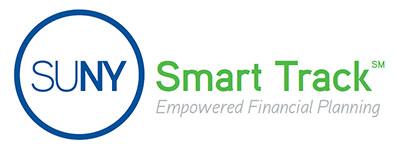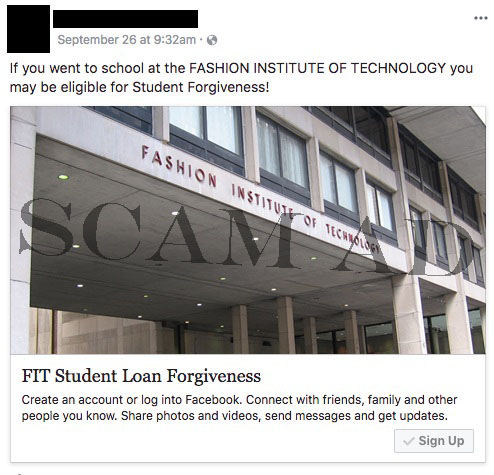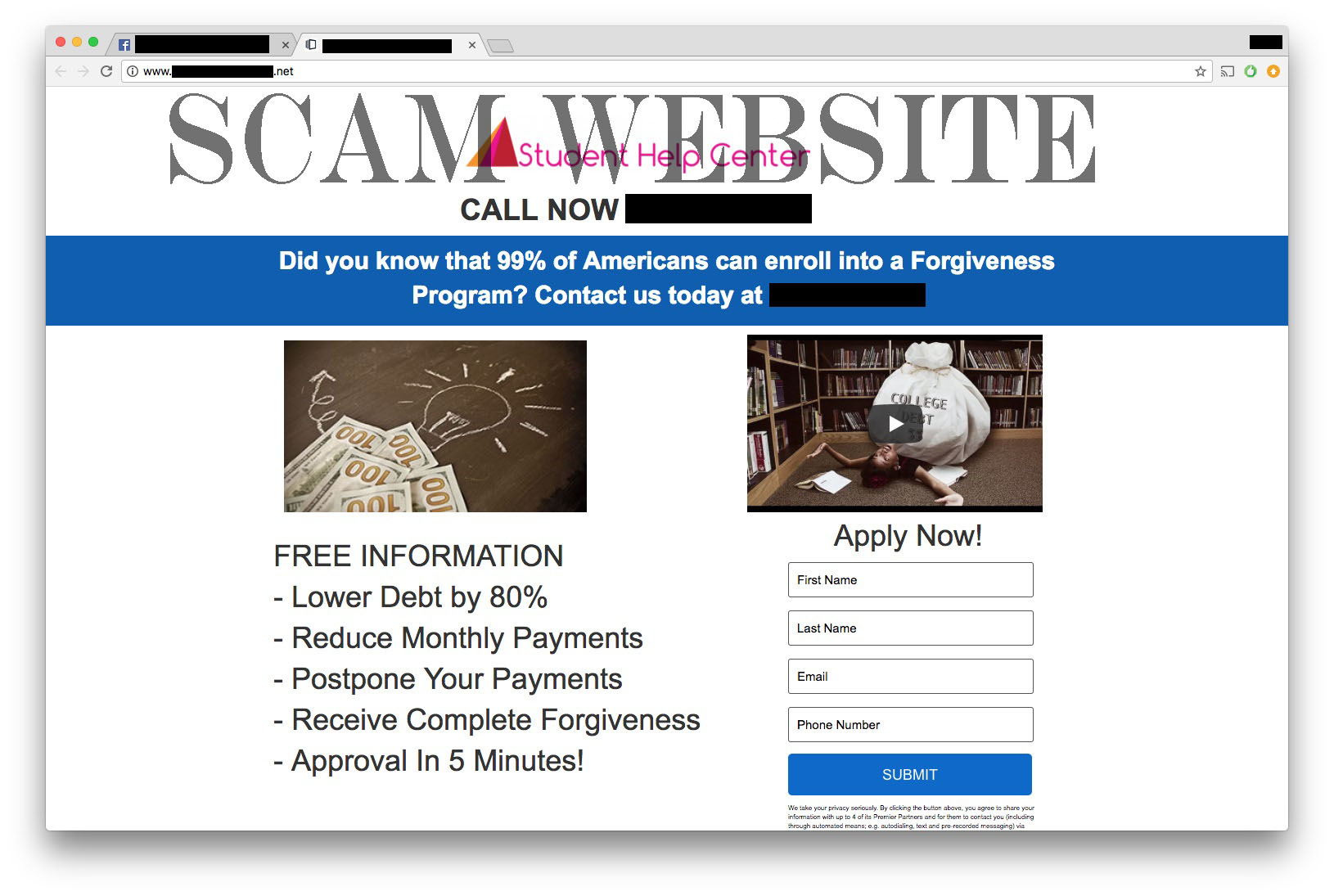Financial Aid Literacy

SUNY Smart Track™ initiatives are aimed at assisting students in making informed decisions beginning with their college selection, financing their education and continuing with supportive message through their time at a SUNY campus.
All FIT students, regardless of their financial situation, can benefit from the SUNY Smart Track™ Financial Literacy Tool. Click on the Smart Track™ link to register.
Smart Track™ resources cover the spectrum of personal financial literacy and the online learning center offers courses, tools, and calculators to help you with all matters of money management.
Scams
The Department of Education Office of Inspector General released a public service announcement warning borrowers of scams regarding the recent Biden-Harris Administration Student debt relief initiative.
- Beware of phone calls, emails, texts and social media messages from anyone claiming that the can help you with student loan forgiveness.
- Beware of anyone offering to move your application through the process or offers to consolidate or refinance your loans for a fee. You can do this for yourself for free.
- Be careful of requests for personal information. Don't share your FSA ID with anyone, even if they say they work with your loans servicing company.
- Be careful of emails with links or attachments embedded in the emails. Hover over the links with your mouse to see if these links are what they say they are. Look for misspelling in the emails address, the body of the message, or the links.
Contact the Office of the Inspector General OIG Hotline if you suspect your personal information was stolen because of one of these scams. Share a copy of the text, email or phone number of this message your received. Notify your loan servicer as soon as possible to let them know.
A warning from the Federal Trade Commission (FTC) has been issued regarding a current email scam that is being sent to students advertising how to receive an economic stimulus check. These phishing emails have misleading subject lines such as "Memo from The Financial Aid (COVID-19 Relief Fund)" and ask for personal information.
You should not answer emails with any request for financial aid or personal information if the email is not an FIT email. Do not answer email asking for login information or follow a link that will download malware. For more information you can go to NASFAA and the Federal Trade Commission websites.
Email [email protected] if you have questions about an email regarding financial aid.
Students and graduates of FIT have reported receiving messages offering loan forgiveness. Some of these loan forgiveness offers contain links to malicious websites.
Below is a sample of a Facebook ad and a scam website.


The only legitimate loan forgiveness, cancellation, or discharge programs are the ones that the Department of Education mentions on these websites:
There are unscrupulous companies that may guarantee scholarships, grants, work-study, and loans or will charge a fee to provide applications services to handle your paperwork. The only application for Federal Student Aid is the Free Application for Federal Student Aid (FAFSA) at fafsa.gov.
For more information about scams, we suggest you read Scholarship and Financial Aid Scams on the Federal Trade Commission website.
There are free scholarship searches online, so don't waste your money on fee-based scholarship matching services. If you have to pay money to get money, it is probably a scam. Do not give money, bank account information, or credit card information to anyone claiming to have a scholarship for you or to anyone guaranteeing you will get you a grant or scholarship.
For more information regarding scholarship scams visit FinAid.org and Common Scholarship Scams.